The Best Cats for Dogs and Dog Lovers
Thinking of adopting a cat but wondering if they’ll get along with your pup? Find out which cat breeds are more dog-friendly — and dog-like.
Thinking of adopting a cat but wondering if they’ll get along with your pup? Find out which cat breeds are more dog-friendly — and dog-like.
by Savannah Admire, | May 18, 2023
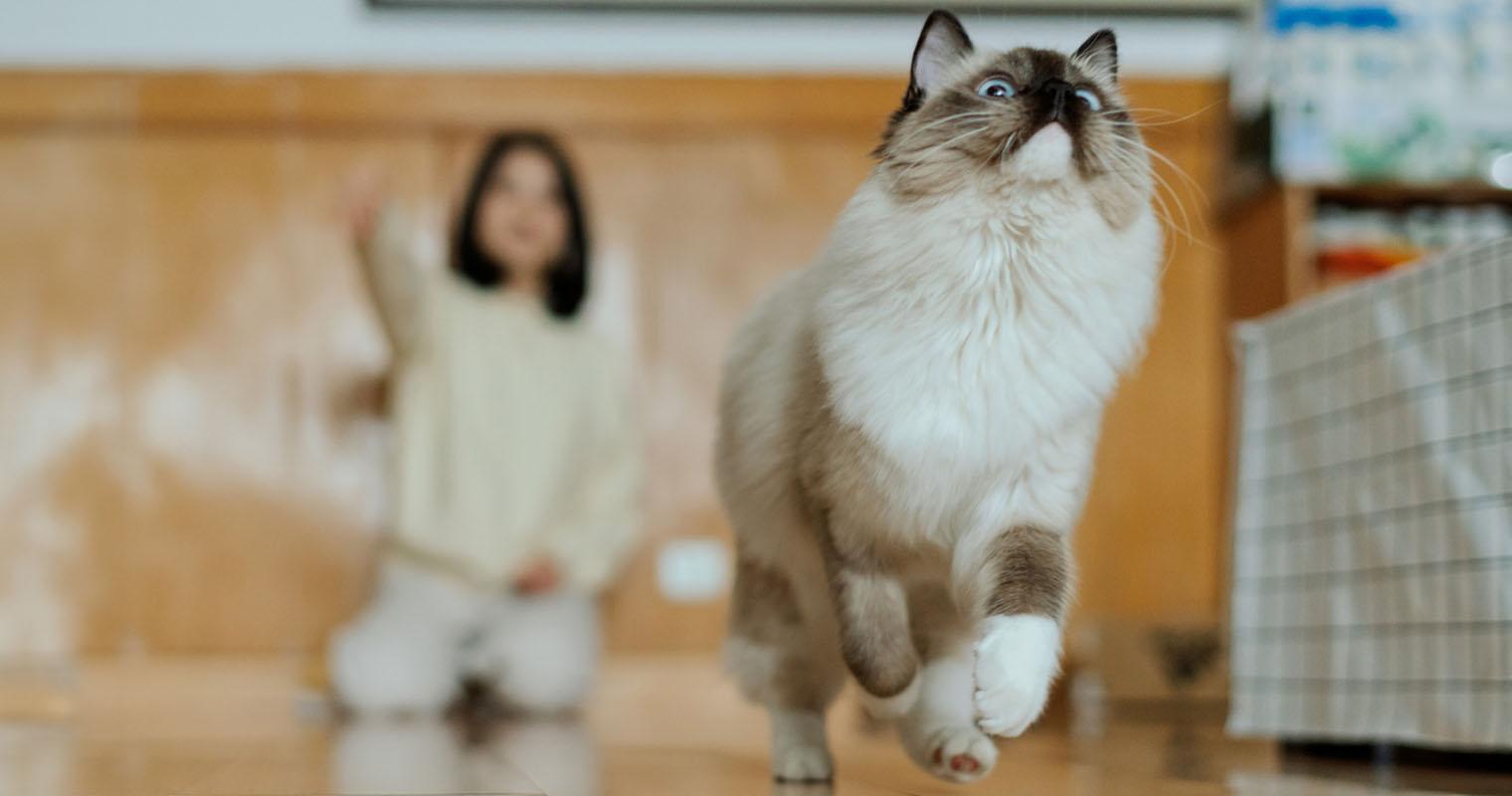
Pansfun Images / Stocksy
Whether you’re a dog person or a cat person, you likely have some ingrained ideas about both species. We often think of cats as low-maintenance and independent animals who rarely show affection, while dogs are considered the extroverts of the pet world, with loyal, playful, and cuddly dispositions.
Believe it or not, many cat breeds exhibit the behaviors we most often associate with dogs, from playing fetch to snuggling to swimming (yes, some cats love water!). So, if you’re a dog lover who can’t have a dog because of allergies or your rental agreement, you may want to consider looking for cat breeds that act like dogs and could provide you with all the affection, loyalty, and delight that a pup would.
Like dogs, cats have been bred over the years to develop specific characteristics, such as more social or playful natures. But unlike dogs, cats have never been selectively bred to cooperate with us in working roles. Still, cats can recognize social cues and can even be trained. Today, many cat breeds are known for having more dog-like traits while still maintaining the independent streak that cats are known for.
But a cat’s breed is only part of what determines their behavior. All animals develop their characteristics through interactions with other animals and people, as well as their environment. The way cats communicate their affection is often pretty different from dogs and can be much more subtle. When a cat brushes against your leg or curls up in your lap, that’s often their way of showing you how much they care and value your presence.
Both dogs and cats communicate with their body language, from facial expressions to ear and tail movements. Dogs are often viewed as more expressive than cats, primarily because they tend to be more vocal about their needs, as well as more playful and social. If you’re looking for cats with more dog-like behaviors, you likely want a kitty with a more mellow temperament, who shows affection openly and enjoys exploring and interacting with their human family.
Cats are incredibly intelligent animals and can even be trained with a bit of patience and consistency. In fact, many cat parents have taught their felines to perform tricks and answer commands — behaviors that are often considered dog-like. Cats also respond well to clicker training, learning quickly to associate certain behaviors with the sound of a clicker. So, even if your cat isn’t dog-like from day one, you can often train them to adopt many of these behaviors with time, patience, and encouragement.
“Cats are often less motivated than dogs to pay attention to us, or do what we are asking, especially in situations where they don’t feel comfortable. These factors may explain the high drop-out rates in studies that involve training cats to attend to human social cues,” says feline welfare and behavior scientist Dr. Lauren Finka from Cats Protection. “Always use positive reinforcement (such as treats and praise). This is not only the most effective way to train pets, but it’s also better for their wellbeing.” So while any cat can be dog-like, don’t get discouraged if your cat doesn’t immediately respond.
While a cat’s breed does not guarantee that they will act more dog-like, there are several breeds that tend to be more social, outwardly affectionate, and loyal, just like their canine counterparts.
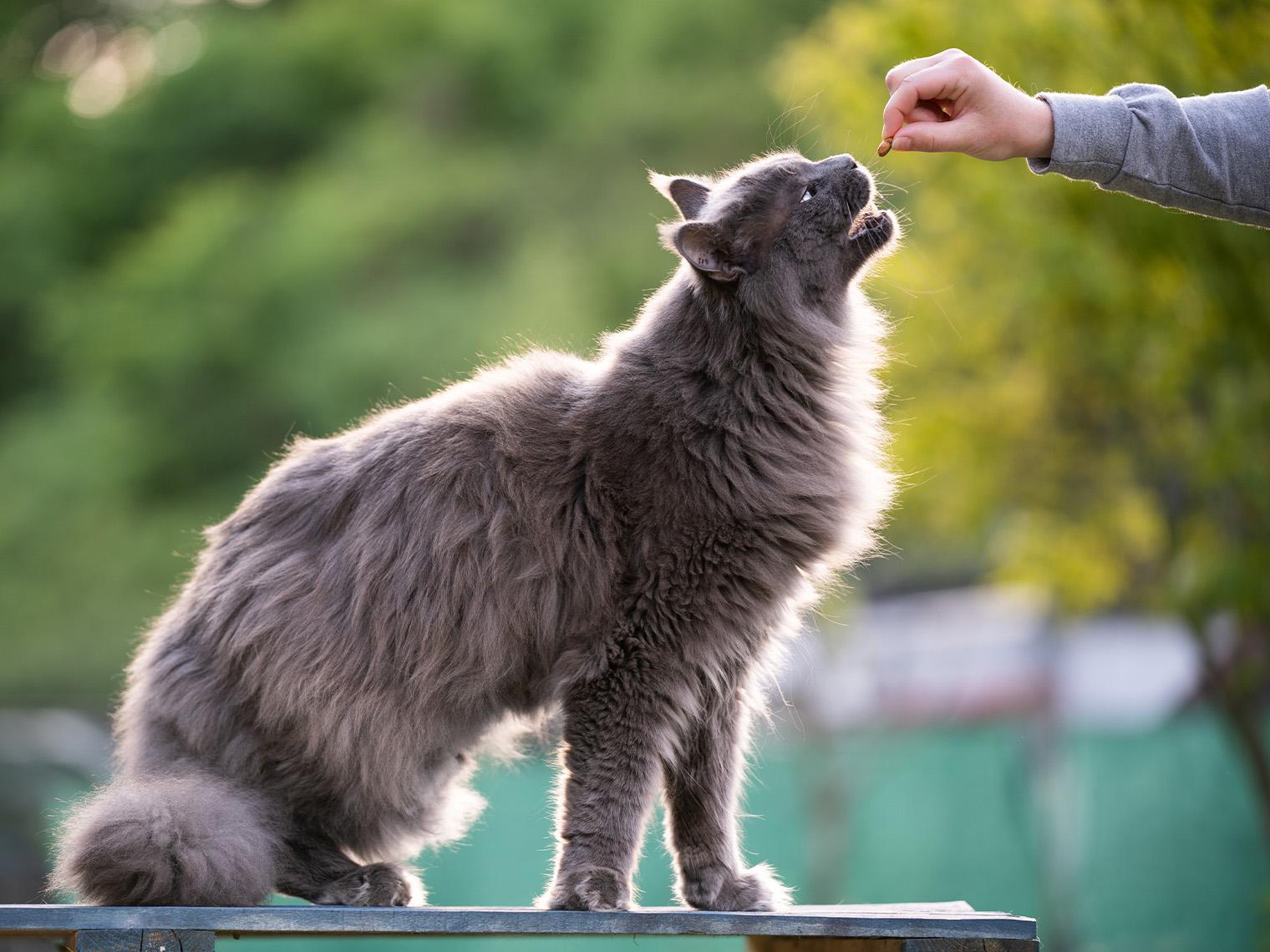
FurryFritz / AdobeStock
Known for being enormous as far as cats go (as large as many toy dog breeds), the Maine Coon is an affectionate and loyal breed that loves to play. Think of these fluffy felines as the cat version of a Bernese Mountain Dog — furry, sturdy, and sweet as can be. The Maine Coon’s large size and playful disposition make them a great choice for families with kids. Just be prepared for frequent grooming, as these cats shed a lot.
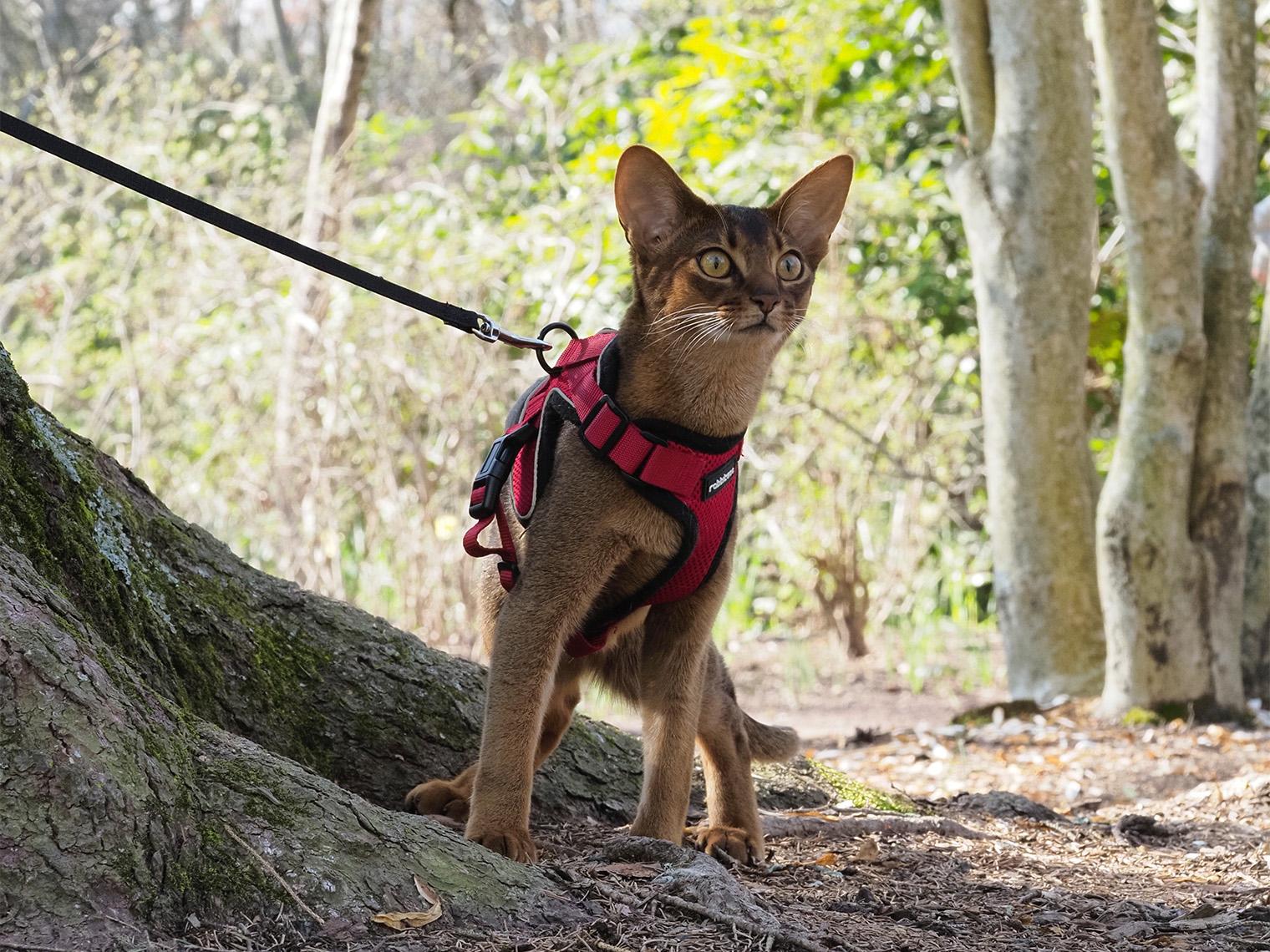
sergey_photos / Unsplash
If you’re looking for a cat to join you on the occasional outdoor adventure, an Abyssinian is a fantastic choice. This cute breed responds incredibly well to leash and harness training and is down to take a stroll with you around the neighborhood. Abyssinians are very social and love to play, even climbing on top of their parents to get a good look around. Be sure to have plenty of interactive toys to keep this cat entertained, including some towers and climbing structures if you don’t want to be your feline’s personal playground.
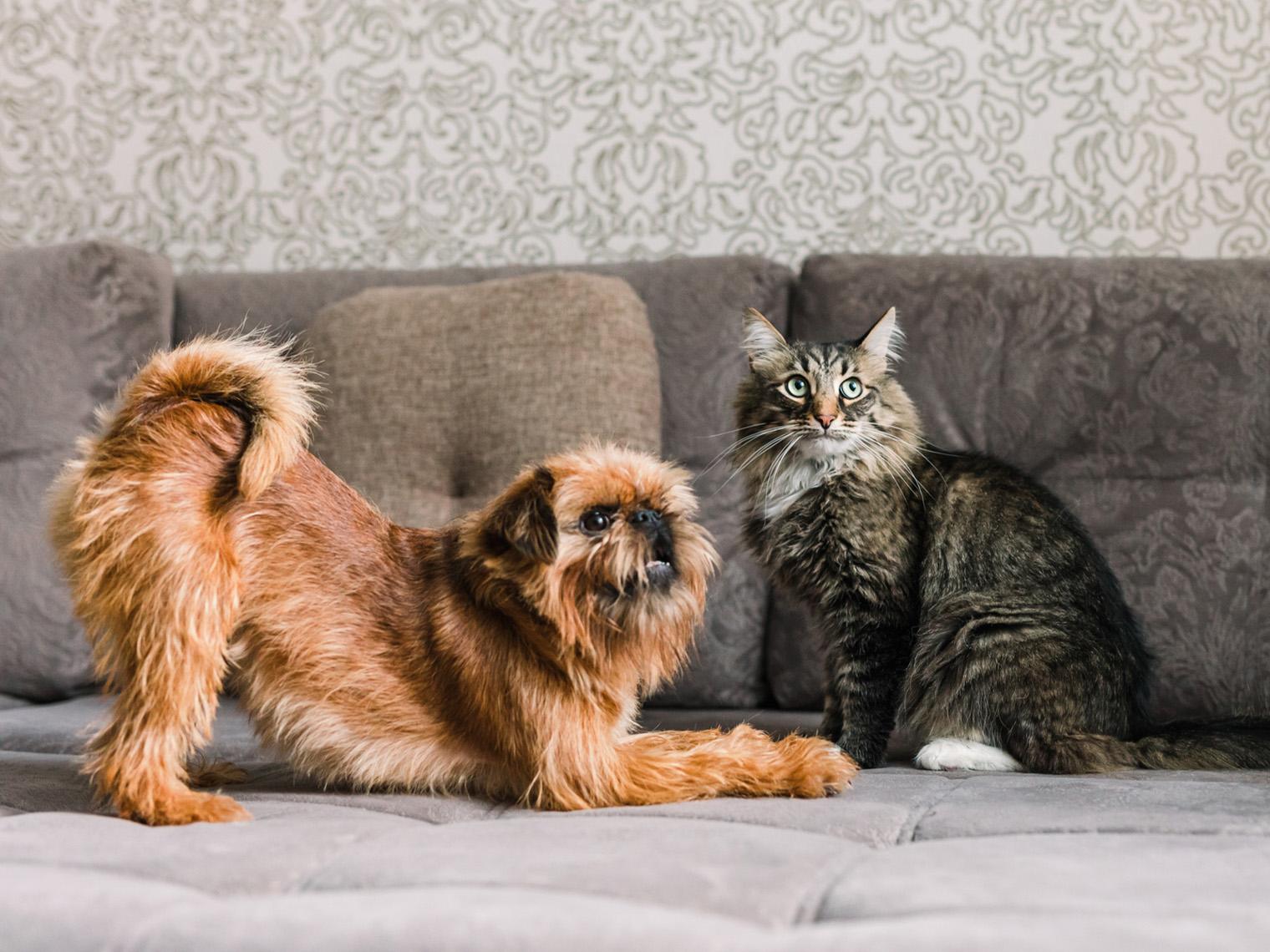
Irina Efremova / Stocksy
While they’re less obsessed with their human parents than many other breeds on this list, the Siberian Cat still boasts high intelligence and athleticism and isn’t put off by bustling or noisy environments. You’re bound to be entertained by this breed’s wild antics and seemingly boundless energy. Siberian Cats also do well with dogs if you take the time to introduce them properly.
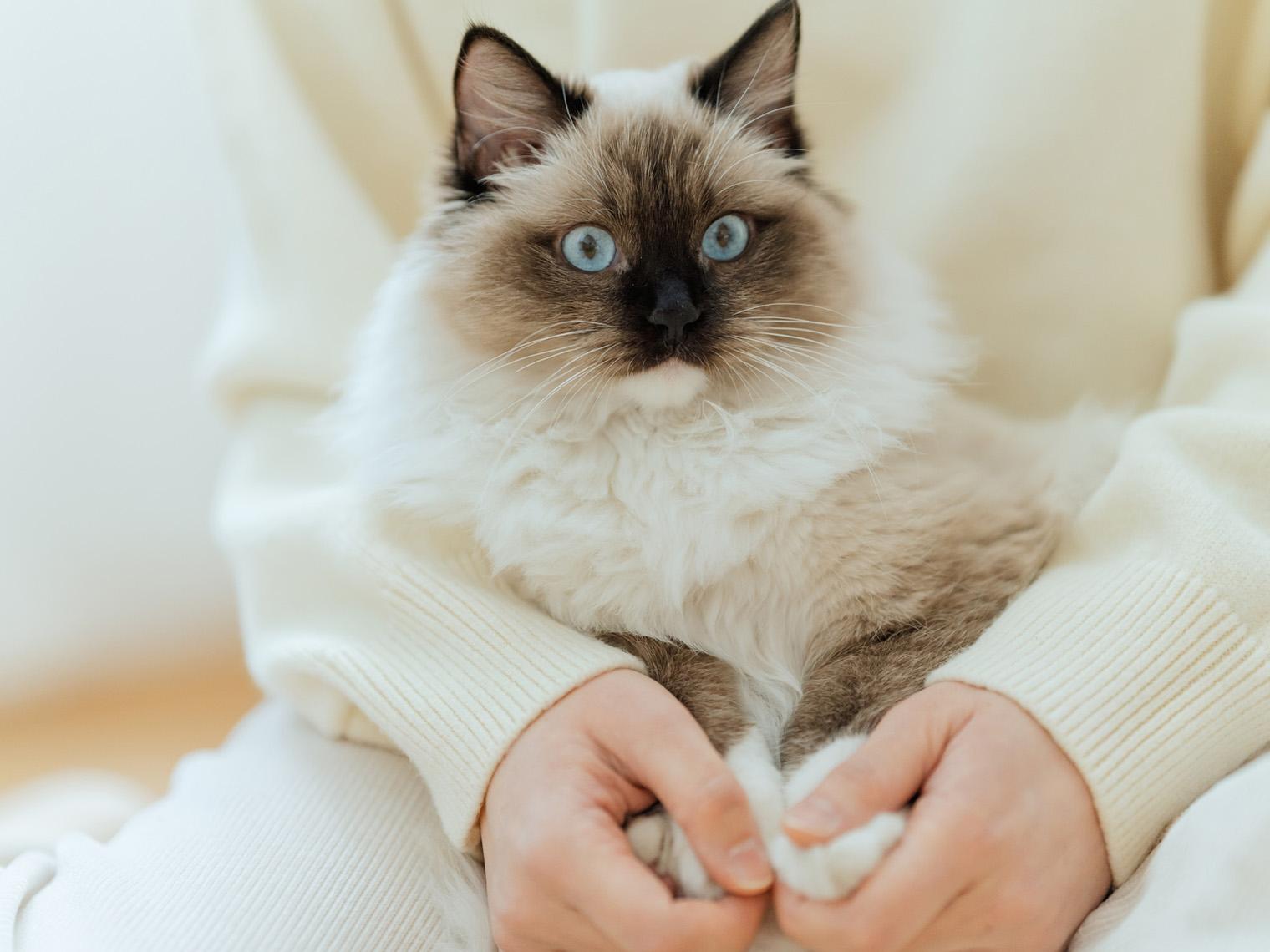
Pansfun Images / Stocksy
This fluffy breed is known as the “puppy cat” for a reason — they’re laid back, eager for playtime or petting, and will stick by your side wherever you go in the house. Named for their unique tendency to go limp and flop around when picked up, Ragdolls are happy to get along with just about anyone, including kids and dogs, and they love to make new friends. Just like their canine counterparts, Ragdolls will greet you at the door when you come home, so if you want a cat that acts like a dog, look no further than this mellow and charming breed.
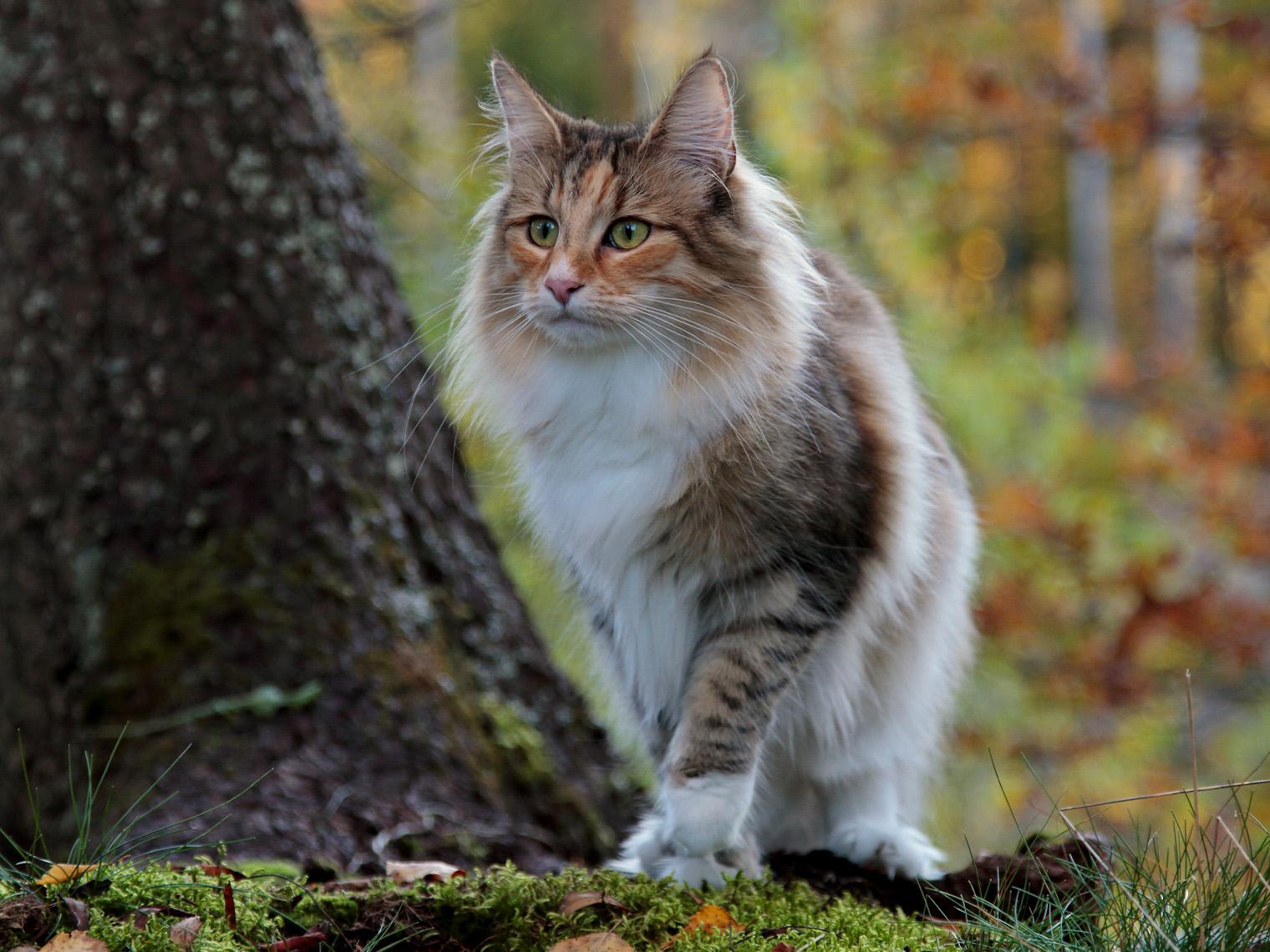
Elisa Putti / Shutterstock
Just like the Maine Coon, the Norwegian Forest Cat is a gentle giant whose massive size belies their loving and affectionate nature. This breed can easily fit into any home, adapting to new environments and getting along well with the whole family, including dogs. Their fluffy coats and beautiful coloring make them look like something out of a fairytale. If you want a canine-sized cat best friend, you can’t go wrong with this breed.
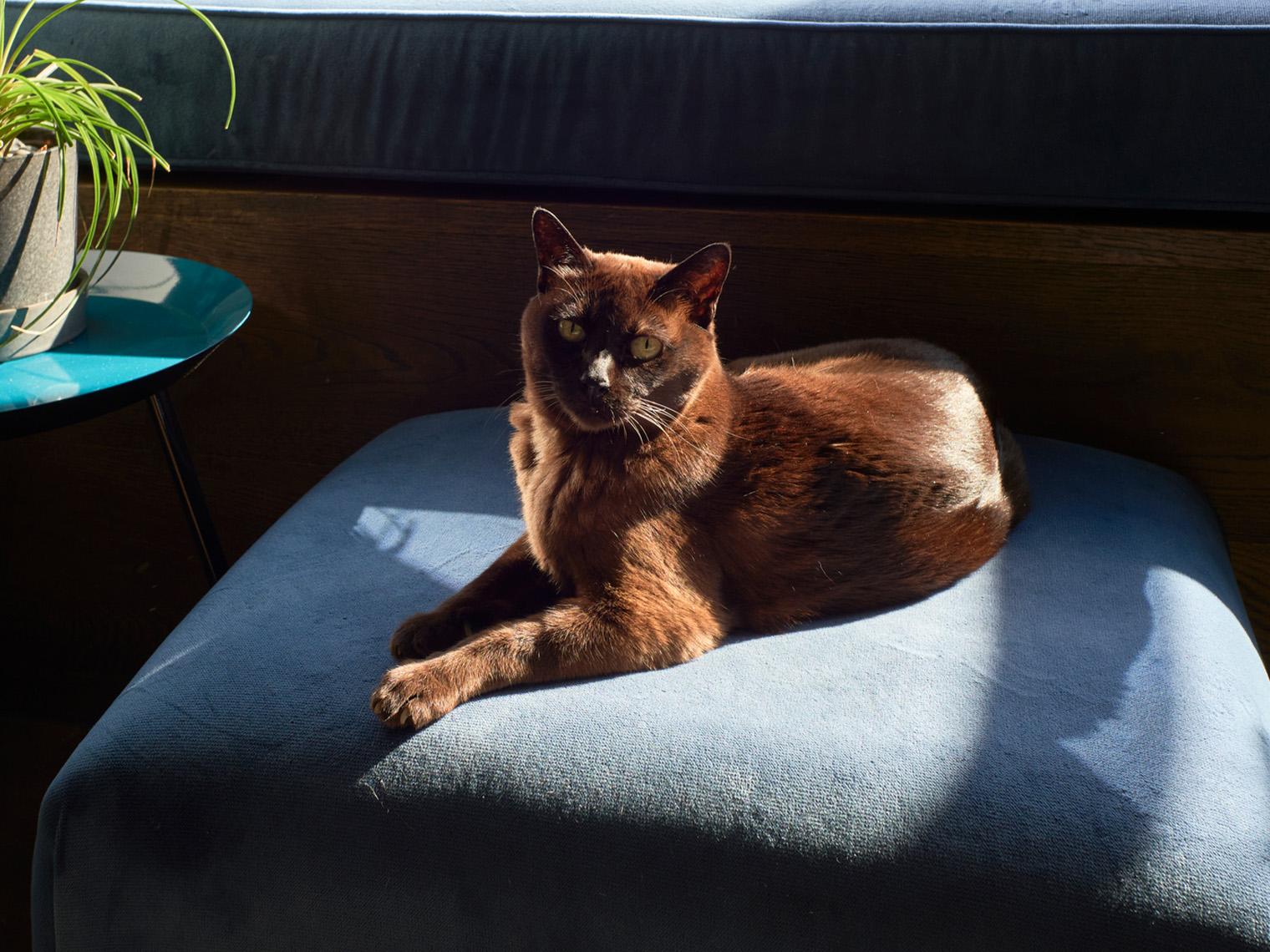
Rowena Naylor / Stocksy
With their highly intelligent and enthusiastic nature, Burmese cats make for affectionate and loyal pets, much like dogs. These cats are perfect for leash training and develop a strong dependency on their human parents, following them from room to room. They may even demand playtime when they’re in the mood for some activity! Be aware that these cats are very vocal about their wants and needs, so don’t expect a quiet household if you adopt this breed.

Samantha Gehrmann / Stocksy
If your biggest complaint about cats is that they don’t come when called, a Manx might be for you. These black cats are known for responding to their human parents, mostly because they genuinely like people and enjoy being around them. This adventurous breed loves climbing and jumping and does well with interactive toys and puzzle feeders to keep them stimulated. Like dogs, Manx cats can even learn new tricks, such as responding to voice commands including “come” and “no.”
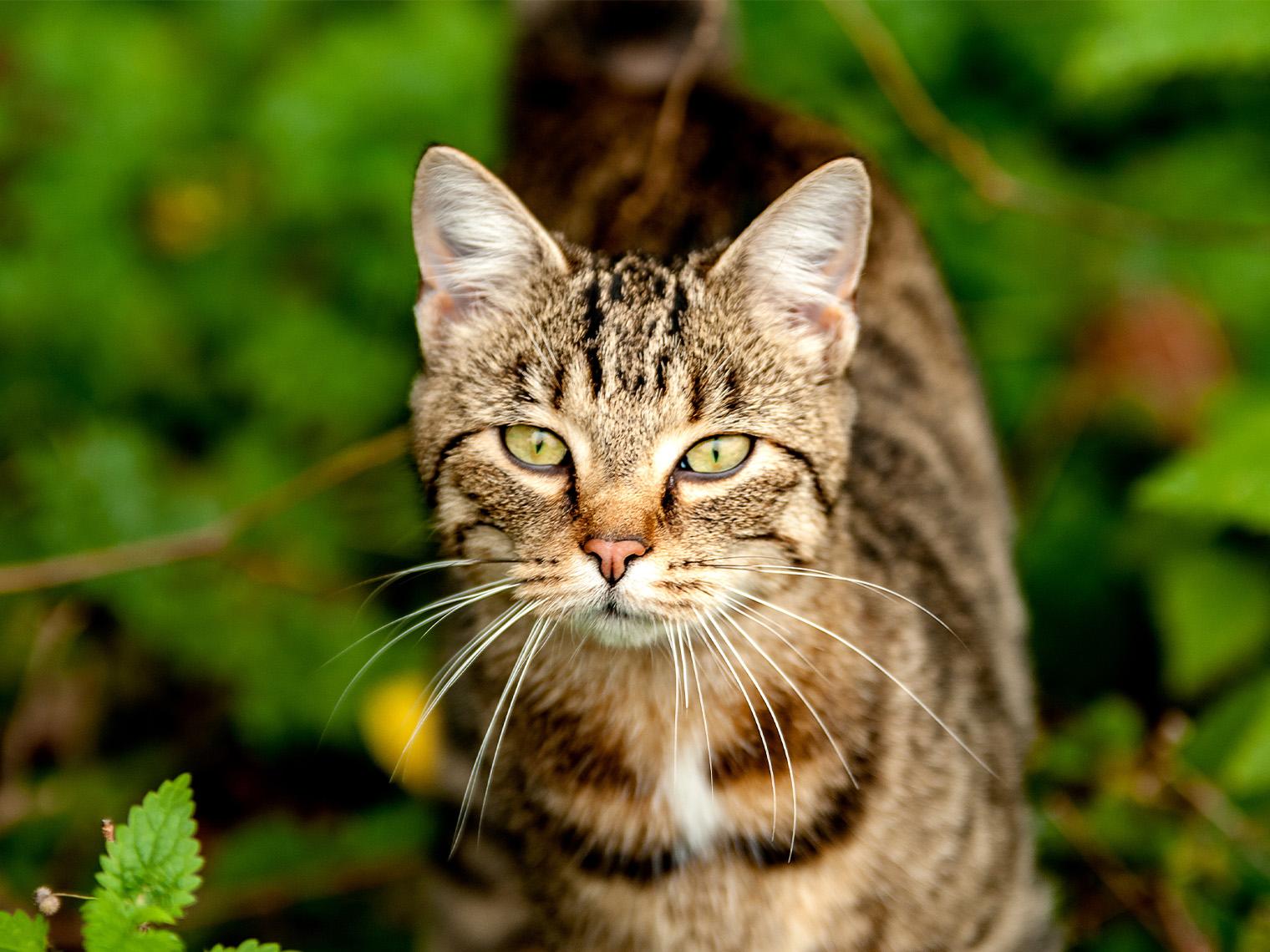
Sauerlandpics / AdobeStock
As loyal as many dog breeds, the American Bobtail tends to form a very close bond with their human parent, making them the ideal companion animal. This social breed also makes a fantastic therapy cat, thanks to their sweet and friendly disposition. Like several cat breeds on this list, the American Bobtail can do well with harness training, so they can join you on your outdoor adventures.

One of the oldest domestic cat breeds in the world, Siamese are known for being social, athletic, and very needy. These cats do well in households with a lot going on and can especially benefit from being around other animals. Siamese easily become destructive when bored, so keep them entertained with plenty of playtime. You may even want to adopt another cat or dog to keep them company when you’re out of the house.
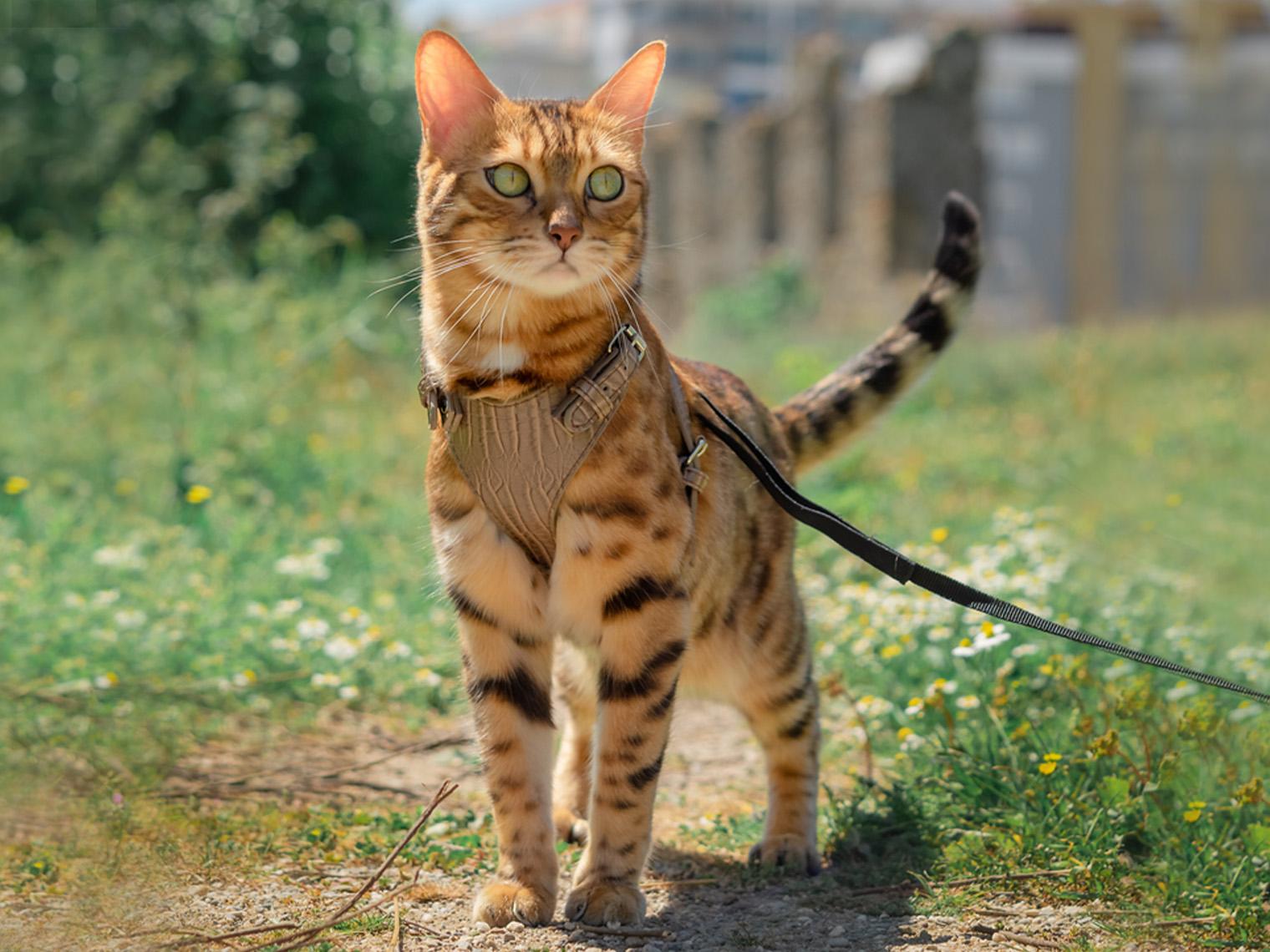
Svetlana Sultanaeva / iStock
With the spots and appearance of a wild cat, Bengals are adventurous, confident, and intelligent, not to mention incredibly devoted to their human parents. Descended from domestic cats crossed with Asian leopards, this breed is highly energetic and even has a love for water — a decidedly un-cat-like trait. You can teach a Bengal various tricks as they are responsive to learning commands. This feline will follow you anywhere, making them a playful and loyal companion.
Just like humans, every cat’s personality is different as a result of their breed, temperament, and environment. Many cats have the calm and social personalities most often associated with dogs, but their breed is no guarantee that a cat will act the way you want it to. That’s why it’s important to take the time to understand your cat and how they express themself, so you can better meet their needs as a pet parent. Visit your local rescue or shelter and find the perfect cat to adopt into your family today.
Cats and dogs aren’t as different as they may seem at first glance. In fact, they share many traits, such as the desire to develop strong bonds with their human families. If you’re looking for a cat who acts more like a dog, pay attention to characteristics like activity level, intelligence, and temperament.
While any of the breeds listed above are sure to scratch the itch for dog lovers, Ragdolls are perhaps the most dog-like cat breed. After all, they’re known as “puppy cats” for their affectionate and cuddly nature.
Domesticated cats and dogs share many of the same traits, and both species communicate with body language. While dogs and cats differ in some aspects, it’s normal for their behaviors to overlap.
The Maine Coon and the Norwegian Forest Cat are the largest breeds on our list; both reach the size of many toy-sized dog breeds. These cats are social and affectionate and can be great choices for families with kids and other pets.
Why You Should Train Your Cat - And How To Do It
Assessment of Clicker Training for Shelter Cats
Social referencing and cat-human communication
Clicker Training Increases Exploratory Behavior in Shelter Cats
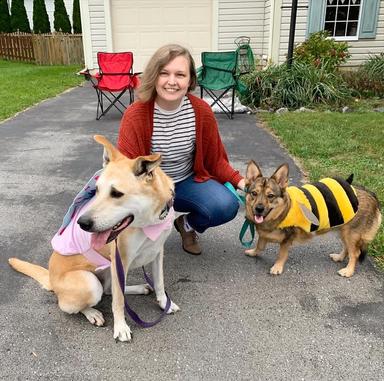
Savannah Admire is a writer, editor, and pet parent to two dogs and a cat. When she’s not writing, you can find her reading, playing Animal Crossing, or being an obnoxious nerd about her favorite movies and TV shows. She lives in Maryland, where she constantly debates whether or not to get a third dog.